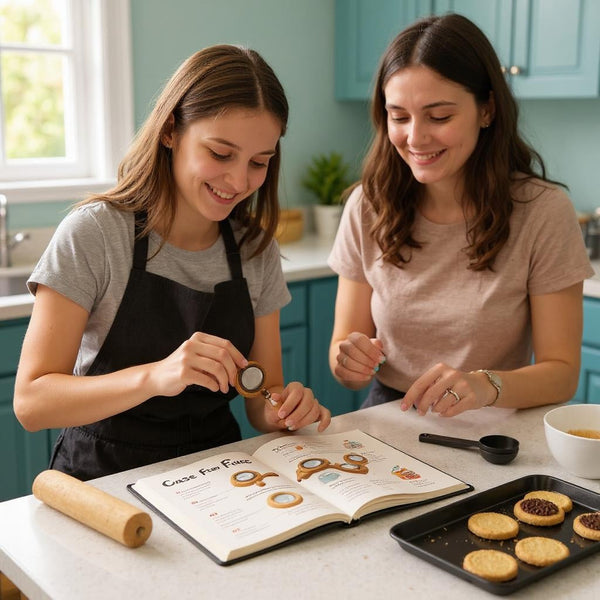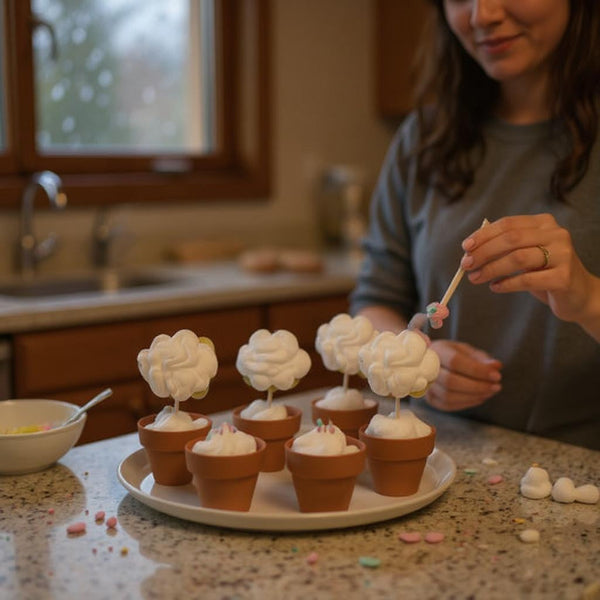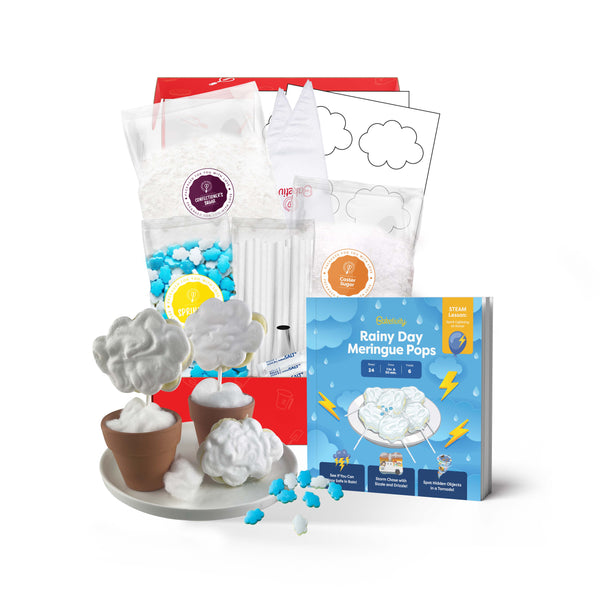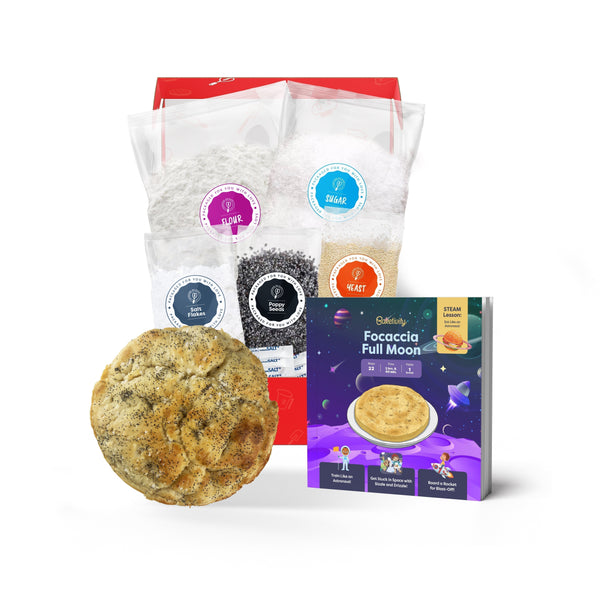Are you passionate about cooking? Do you dream of turning your love for food into a successful career? Then,
exploring the world of culinary arts is a must! Whether you want to become a professional chef or simply enhance your cooking skills, a homeschool culinary curriculum can be your pathway to success. In this article, we will take you on a journey from understanding the basics of culinary arts to exploring the role of a homeschool culinary curriculum, and finally transitioning from the kitchen to a fulfilling culinary career. So, put on your chef's hat and get ready to dive into the flavorsome world of culinary arts!
Understanding the Basics of Culinary Arts
Culinary arts is more than just cooking; it's an art form that blends creativity, technique, and passion. By developing a solid foundation in the basics of culinary arts, you will not only learn how to create delicious meals but also gain an understanding of the importance of culinary skills in your everyday life.
Embarking on a journey into the world of culinary arts opens up a realm of endless possibilities. It's a realm where flavors dance harmoniously, ingredients transform into culinary masterpieces, and where your creativity knows no bounds. The kitchen becomes your canvas, and each dish you create is a work of art that tantalizes the senses and nourishes the soul.
The Importance of Culinary Skills in Everyday Life
The skills you acquire in culinary arts go beyond the kitchen. From meal planning and nutrition to time management and multitasking, culinary skills are essential for a well-rounded lifestyle. Whether you're preparing meals for your family or hosting a dinner party, knowing your way around the kitchen will make every culinary experience a memorable one.
Furthermore, mastering culinary skills can lead to a deeper appreciation of different cultures and cuisines. Through exploring diverse cooking techniques and ingredients, you not only broaden your culinary repertoire but also gain a greater understanding of the rich tapestry of global gastronomy. This cultural immersion through food fosters connections, bridges gaps, and celebrates the universal language of taste.
Key Components of Culinary Arts
Mastering culinary arts involves more than just cooking techniques. It encompasses a range of essential components, including food safety and sanitation, knife skills, flavor profiling, menu planning, and plating presentation. Understanding these key components will help you elevate your culinary creations and develop a deeper appreciation for the artistry behind every dish.
Delving into the realm of flavor profiling allows you to understand the nuances of different ingredients and how they interact to create complex taste profiles. Menu planning goes beyond just selecting dishes; it involves creating a cohesive dining experience that takes into account flavor balance, texture variation, and visual appeal. Additionally, mastering the art of plating presentation transforms a dish from mere sustenance to a visual masterpiece that delights both the eyes and the palate.
The Role of a Homeschool Culinary Curriculum
Now that you have a taste of what culinary arts entails, let's dive into the role of a homeschool culinary curriculum. A
homeschool culinary curriculum provides a structured framework to guide your culinary journey, ensuring that you receive a comprehensive education in the culinary arts.
Embarking on a homeschool culinary curriculum opens up a world of culinary exploration and skill development. Beyond just learning recipes and cooking techniques, this curriculum delves into the history of gastronomy, the science behind food preparation, and the cultural significance of different cuisines. By immersing yourself in this rich tapestry of culinary knowledge, you not only hone your cooking skills but also develop a deeper appreciation for the art and science of food.
Benefits of a Homeschool Culinary Curriculum
One of the many benefits of a homeschool culinary curriculum is the flexibility it offers. You have the freedom to tailor your learning experience to your unique interests and schedule. Furthermore, a well-designed curriculum provides a balanced mix of theoretical knowledge, hands-on practice, and real-world experience, giving you a head start in the culinary industry.
Moreover, a homeschool culinary curriculum fosters creativity and innovation in the kitchen. As you progress through the curriculum, you'll have the opportunity to experiment with flavors, ingredients, and cooking techniques, allowing you to develop your signature culinary style. This creative freedom not only enhances your culinary skills but also nurtures your passion for cooking, turning each meal preparation into a delightful and fulfilling experience.
What to Look for in a Homeschool Culinary Curriculum
When choosing a homeschool culinary curriculum, it's essential to consider factors such as curriculum content, instructor support, practical training opportunities, and industry recognition. Look for programs that provide a well-rounded culinary education, equip you with essential skills, and offer resources to support your learning journey.
Additionally, seek out a curriculum that emphasizes sustainability and ethical practices in the culinary world. Understanding the importance of sourcing ingredients responsibly, reducing food waste, and supporting local producers is crucial for aspiring chefs in today's culinary landscape. By incorporating these values into your culinary education, you not only become a skilled chef but also a conscientious and socially responsible member of the culinary community.
Transitioning from Kitchen to Career
As you become proficient in culinary arts through your homeschool culinary curriculum, you may start thinking about turning your passion into a career. Let's explore some career opportunities in culinary arts and the skills required for a successful culinary career.
Career Opportunities in Culinary Arts
The culinary industry offers a wide range of career opportunities, from working in renowned restaurants and hotels to catering, food writing, food styling, and even entrepreneurship. By honing your skills and gaining practical experience, you can pursue a career that aligns with your passion and individual goals.
Skills Required for a Successful Culinary Career
Apart from culinary expertise, a successful culinary career demands a variety of skills. These include effective communication, teamwork, creativity, adaptability, and the ability to manage high-pressure environments. As you progress in your culinary journey, focus on developing these skills to thrive in the fast-paced and competitive culinary industry.
Tips for Incorporating Culinary Arts into Homeschooling
As a homeschooler, integrating culinary arts into your curriculum can be an exciting and enriching experience. Here are some practical ways to teach culinary arts at home and overcome challenges along the way.
Practical Ways to Teach Culinary Arts at Home
Start by
introducing your children to basic cooking techniques and recipes. Dedicate time for family cooking sessions and encourage them to explore different flavors and cuisines. Additionally, include culinary projects in your homeschooling activities, such as creating a family cookbook or organizing a themed dinner night. These hands-on experiences will foster a love for cooking and equip your children with valuable life skills.
Overcoming Challenges in Homeschool Culinary Education
While homeschooling culinary education offers numerous benefits, it also comes with its challenges. Lack of access to professional-grade equipment, limited exposure to diverse cuisines, and the absence of face-to-face training can pose obstacles. However, by seeking online resources, joining culinary communities, and taking advantage of local culinary workshops, you can overcome these challenges and provide a well-rounded culinary education for your children.
The Future of Culinary Arts Education
As technology advances, culinary arts education continues to evolve. Let's explore the impact of technology on culinary education and the growing trend of homeschool culinary curriculums.
The Impact of Technology on Culinary Education
Technology has revolutionized the way we learn culinary arts. Online cooking classes, virtual reality culinary simulations, and interactive cooking apps have made culinary education more accessible than ever before. Embracing these technological advancements can enhance your learning experience and help you stay up-to-date with the latest trends and techniques in the culinary world.
The Growing Trend of Homeschool Culinary Curriculums
In recent years, homeschool culinary curriculums have gained popularity among families seeking a comprehensive, flexible, and personalized culinary education. The ability to learn in the comfort of your own kitchen, at your own pace, and with individualized attention has made homeschool culinary curriculums an appealing option for both aspiring chefs and cooking enthusiasts. With the right curriculum, you can turn your culinary dreams into reality.
Conclusion
Embarking on a culinary arts journey through a homeschool culinary curriculum opens up a world of flavors, creativity, and career opportunities. From mastering the basics of culinary arts to transitioning into a successful culinary career, every step of the way is infused with excitement and exploration. So, if you have a burning desire to unleash your inner chef, don't let anything hold you back. Equip yourself with the knowledge, skills, and passion needed to thrive in the culinary industry. From the kitchen to your future career, culinary arts will be your guiding companion. Happy cooking!




